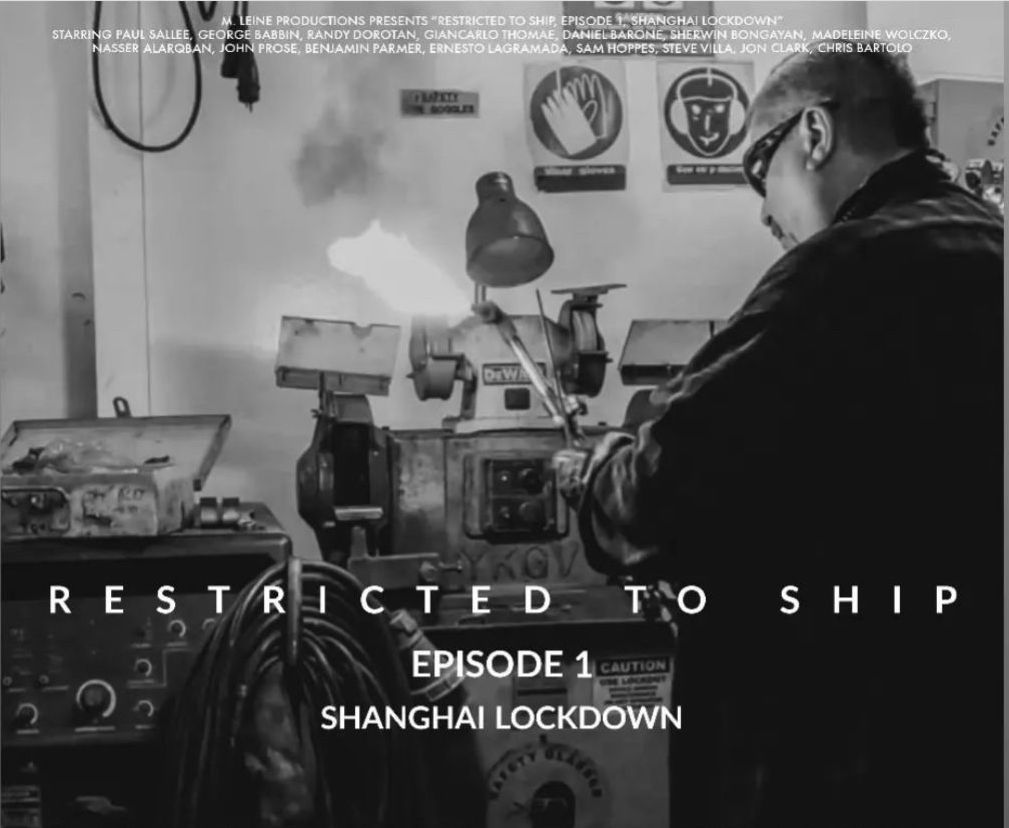
WATCH An American Ship Get Locked Down In China
by John Konrad (gCaptain) In November American Merchant Marine officer Madeleine Wolczko left her island home and took a Washington State Ferry to Seattle then caught a flight south to Oakland, California where she began looking for a ship. She found a ship but could not have anticipated that six months later she would be stuck in China’s massive COVID Lockdown.
As an American union member, the process has not improved since John McPhee documented the process in his award-winning 1991 book Looking For A Ship. While the rest of the world has moved to electronic systems members of Wolczko’s union, Master Mates & Pilots, still need to travel to a hall and submit union cards and pray there are enough jobs on the board. Often there are not. What has changed since the arduous process was documented by McPhee is the United States has less than half the number of ocean-going ships. Covid restrictions also make the process difficult. Before joining Wolczko had to get multiple COVID tests and a mandatory ten-day quarantine before joining her ship. Quarantines are important for seafarers because there are no hospitals in the middle of the ocean or medi-vac helicopters that can fly far enough to help.
The difficulties she faced, however, were insignificant compared to the challenges her crew faces today.
After sailing a routine Cross-Pacific run aboard her containership, the ship arrived in China, discharged its last containers, and traveled down the Yangtze River (a 5-6 hour transit) to the quarantine anchorage on February 9th. The crew was told that as per China’s policy, the ship must at anchor for either 14-days from the last foreign country, or 30-days from the last crew change, whichever was longer. Twelve days later they were given approval to dock at the shipyard. That’s when the real trouble started.
“We were doing multiple COVID tests a day, including initially one blood test – this was all additional quarantine,” says Wolczko. “Government workers also came aboard and sprayed bleach everywhere in the house and on deck.”
Shipyard work began but the process was slow and chaotic and required the ship’s engineers to disable the engines and generators as she entered drydock. No shore power was provided. By March 12th she had a fresh coat of paint and was refloated on the 21st.
The end of the intense work overhaul was finally in sight but then, on 23 March, all the shipyard workers went to lunch and never returned. China had entered total lockdown.
With time on their hands, the Crew started a new project, a documenting the life of a few American sailors locked down on a ship in China.
You can watch the series trailer here and the first episode below.
Episode 1 – Shanghai Lockdown

Subscribe for Daily Maritime Insights
Sign up for gCaptain’s newsletter and never miss an update
— trusted by our 107,230 members

Get The Industry’s Go-To News
Subscribe to gCaptain Daily and stay informed with the latest global maritime and offshore news

 Join The Club
Join The Club






